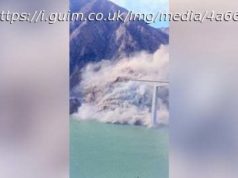‘China has got the message and that should help environmental businesses become the hot stocks of the future’
Chinese pollution is far more damaging to Chinese people than anyone else. So it is unsurprising that pollution concerns are the most discussed topic in social media. The critical Chinese pollution documentary was viewed 200 million times in seven days. Pulmonary ailments caused by small particle (PM2.5) exposure causes 1.2 million premature deaths every year. Even in 2009 when I studied in Beijing, the easiest Chinese phrase to parrot was not “The weather is hot” but “ ” (it’s very polluted) . No longer does China feel that pollution is not its responsibility – merely because it is merely Western pollution, transposed. Nevertheless, 30 years of the most populous nation on earth dissing the environment in a blind rush for development means that China is the world’s biggest emitter of greenhouse gases. East Capital, the emerging markets asset manager, calculates that “airpocalypse episodes”, where the air quality index is worse than inside an airport smoking room, affects 25 per cent of the population. The Beijing air quality index was above 100 (unhealthy) for 193 days of 2015. The annual economic cost of air pollution for the main conurbations is estimated to be US$1 billion. Even a climate change denier must recognise that breathing industrial dust concentrates is a bad thing. But it is not just the air. Thirty per cent of water resources in China are undrinkable and 12.5 per cent of farmland is polluted by heavy metals. Milk has been contaminated by accident – and on purpose. Cleaning up is eyewateringly expensive although that provides investment opportunities for the 350 listed Chinese green companies. Francois Perrin, East Capital’s clean investment guru, says: “By the end of the 13th five-year plan in 2020, the annual cost of the war against pollution will be 2.7 per cent of China’s gross domestic product.” That is a massive 2.5 trillion yuan (US$367.9 billion) , more than the size of the Hong Kong economy. This large investment implies strong government support for environmental protection and regulation. PM2.5 levels have already been slightly reduced since 2015 and the perception is that, just occasionally, there are a few more “blue sky days”. Water treatment will be the main beneficiary of this investment with 50 billion yuan planned for clean water and a further 47 billion yuan for sewage plants. The Soil Pollution Prevention Act is likely to add 5.7 trillion yuan and there is an additional budget to clean hazardous waste. Clean energy is the most dynamic sector as 10 per cent of China’s vehicles are slated to be fully electric by 2025. BYD already produces more electric vehicles than Tesla. Battery-only cars sold in the nation last year exceeded the rest of the world put together. Batteries are becoming cleaner and greener and more than 75 per cent of the world’s electric vehicle battery sets are used domestically. China’s clean technology industry has more than half of the world’s green investments. The nation boasts six of the top 10 solar panel manufacturers, making 75 per cent of solar panels globally. They generate a quarter of the planet’s solar power. Four of the top 10 makers of wind turbines make half of the world’s wind turbine generators. China alone outputs a third of the world’s wind power. China’s state-owned structure can turn today’s domestic champions into tomorrow’s global leaders. The first Chinese carbon market will be launched this year to allow industry to trade carbon credits. This puts a cost on emissions for polluters who hitherto have had a free ride. The leadership has pledged a 40 to 45 per cent reduction in carbon intensity by 2020 over 2005; and 60 to 65 per cent by 2030. Donald Trump’s withdrawal from the Paris climate accord has raised concern in Washington that choosing pollution over the moral high ground will diminish US influence around the world. A bigger danger for the US is in missing an opportunity for environmental-sector business. Xi has just as much reason to keep his industrial base content as Trump, but he better understands that his power base comes from the people and the people breathe the air. Pollution pays a deadly dividend in health costs, climate change and the plight of ordinary people. A protected environment is cheaper in the long run as every consumer can afford a few pennies to live with blue skies and blue water. China has got the message and that should help environmental businesses become the hot stocks of the future.






